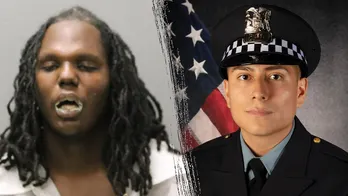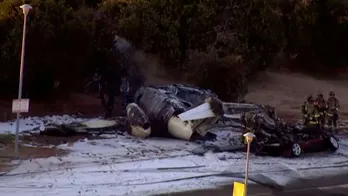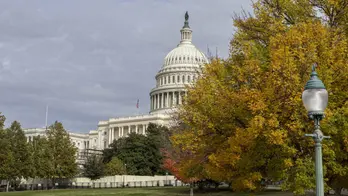After Jordan Neely's death, homeless advocates blame NYC's 'dehumanizing' policies
Advocates for the homeless are calling for accountability in the death of Jordan Neely, a 30-year-old homeless man who died this week on a New York City subway train after he was placed in a fatal chokehold by a fellow passenger for several minutes.
Neely, a Black man who had performed on subway platforms as a Michael Jackson impersonator, had been complaining of hunger and thirst while riding an F train in Manhattan on Monday, according to journalist Juan Alberto Vazquez, who witnessed the incident. Vazquez described his account in a Facebook post in which he shared a four-minute video showing the encounter.
Neely shouted that he was fed up, that he didn't care if he went to prison and that he was ready to die, Vazquez wrote. Neely then took off his jacket and aggressively threw it on the subway-car floor, but did not appear to want to attack anyone, according to the journalist. Then, a white 24-year-old passenger on the train put Neely in a headlock and held him in the position for 15 minutes, Vazquez said. Two other bystanders also stepped in to help the man restrain Neely.
The city's medical examiner ruled the death was a homicide caused by compression of the neck from the chokehold. No arrests have been made following the incident.
Lawyers for Daniel Penny, the 24-year-old who restrained Neely in a chokehold, told Gothamist in a statement that their client "never intended to harm Mr. Neely and could not have foreseen his untimely death."
The attorneys, Steven Raiser and Thomas Kenniff, said that "when Mr. Neely began aggressively threatening Daniel Penny and the other passengers, Daniel, with the help of others, acted to protect themselves, until help arrived."
The lawyers relayed Penny's condolences to those close to Neely. The statement ended with a call for elected officials to address "the mental health crisis on our streets and subways."
The Manhattan district attorney's office, meanwhile, is conducting its own investigation into Neely's death.
"This situation cries out for justice," said Shelly Nortz, deputy executive director for policy at the Coalition for the Homeless. "I want to see this person held accountable for killing a fellow New Yorker. Allowing this to happen only encourages others to do the same."
In response to the killing, Nortz and other advocates for the homeless place direct blame on the city's policies and rhetoric surrounding people experiencing homelessness. They say the policies criminalize people living on the streets, many of whom experience mental illness.
Jawanza Williams, the director of organizing at Voices Of Community Activists & Leaders (VOCAL-NY), said in a statement that "people have been deputized" by Mayor Eric Adams' and New York Gov. Kathy Hochul's "hyper-conservative, fear-mongering rhetoric."
"The murder of Jordan Neely is a direct result of the sustained political, systemic abandonment and dehumanization of people experiencing homelessness and mental health complexities," the statement read. "Neely's blood is on their hands, and any semblance of justice here requires accountability and a reversal of Adams' austerity budget and Hochul to stop blocking progressive policy in Albany."
Reducing New York City's homelessness and crime have both been a primary focus of Mayor Adams' agenda. He and Hochul have sent out outreach workers to and stepped up police presence in the subway system — where officers are mandated to enforce new transit rules that include a ban on sleeping — to make the city feel safer. Last year, the mayor announced plans to hospitalize more homeless people by involuntarily providing care to those considered to be in "psychiatric crisis."
Advocates fear the city's approach is shaping residents' perceptions of people who are homeless as being violent.
"There's been this constant implicit and sometimes explicit link between homelessness and crime — homelessness and lack of safety," said Sara Newman, director of organizing at the Open Hearts Initiative. "The same goes for mental illness. And the solution to that is to make people who are experiencing homelessness or mental illness go away."
"When you have the highest leaders in the state and city validating that kind of perception and link, I think it makes people feel like it's OK to stand by when someone is being murdered for not actually hurting anyone," she added.
In reality, Nortz of the Coalition for the Homeless noted, people experiencing homelessness or mental illness are at a greater risk of being harmed than of harming others.
Neither the office of the mayor nor the governor have returned NPR's requests for comment.
Adams took heat for his lack of rebuke in comments made following Neely's death. Asked whether it's appropriate for people to take matters into their own hands in a situation, Adams told CNN on Wednesday, "We cannot just blanketly say what a passenger should or should not do in a situation like that. We should allow the investigation to take its course."
The same question was put to Hochul.
"I think it's a case-by-case situation," she told reporters. "But it became very clear that the individual was not going to cause harm to these other people. And the video of three individuals holding him down until the last breath was snuffed out of him, I would say, was a very extreme response."
She also said Neely's family deserves justice.
Newman hopes Neely's death makes people, elected officials in particular, rethink their approaches to policies and rhetoric that affect people experiencing homelessness and mental illness.
"It shouldn't take something horrible happening to be a wake-up call for people about how dangerous the dehumanization of our neighbors is," she said.
Disclaimer: The copyright of this article belongs to the original author. Reposting this article is solely for the purpose of information dissemination and does not constitute any investment advice. If there is any infringement, please contact us immediately. We will make corrections or deletions as necessary. Thank you.







